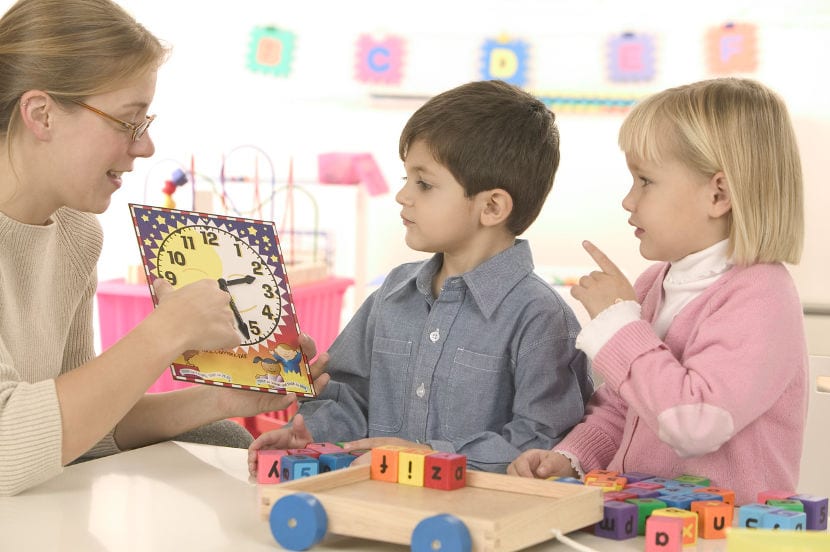
Monkimun, experts in language learning for children through apps, has presented a series of recommendations to promote the bilingualism In the kids. From Monkimun they explain that speaking another language at home leads, among other things, to imitation by the child, eliminating the feeling of obligation, since the family use of a foreign language allows creating a natural learning environment that facilitates later recognition in class
Various studies affirm that learning languages in a family environment is the best way to achieve perfect language immersion. For example, did you know that a child who speaks a foreign language at home could reduce the 7 years it would take to use academic English correctly?

The results of the European Study of Linguistic Competence in a Foreign Language (ESCL) show that bilingualism is perfected and improved whether the children use it regularly at home or if one of the parents has another mother tongue. Por eso Monkimun It is committed to favoring the learning of another language in the family environment.
Marieta Viedma, co-founder of Monkimun, affirms that "For a child to be considered proficient in a foreign language, they must use that language at least 20% of the time and, for this, it is essential that the whole family participate in learning." Also, remember that «There are studies that affirm that a child, with a very basic level of English, would take 7 years to master it correctly. A time that can be reduced if you practice this language at home ».
Recommendations for learning English as a family
From Monkimun they offer the following recommendations for learning English as a family:
Imitation
At a very early age, children learn by imitation, so they will take as a reference everything they see in their family environment. In that sense, we must repeat and name what we do so that the little one relates action and word.
Viedma assures that "By doing this, contact with the new language would become contagious and the child would find the frequent use of expressions such as Nice to see you or Have a great day amusing."

Naturalness
Speaking English at home eliminates the feeling of obligation that comes with learning another language in an academic setting., since it is the need and desire to interact with their environment that induce the child to use it to be understood and cared for.
«The result will depend on the ease and ease with which the new language is introduced. In the case of Monkimun, the child feels the need to know the language to advance in each lesson and continue having fun », explains Viedma.
At home you learn and in the classroom you consolidate
Contrary to what usually happens, school or classes would become a place to put into practice what was learned at home through parents, apps, TV shows or movies. Thus, the child is immersed in a natural learning and later recognition in class is encouraged by identifying something that has been seen or heard before.
Viedma stresses that «If the child is introduced to bilingualism in a natural way, the little one ends up adapting their brain schemes to this process, facilitating their learning».
Contextualization
The vocabulary they learn at home is always contextualized so the child develops the ability to think directly in the foreign language, combating the tendency that sometimes exists to translate the received message into the language itself.
From Monkimun they assure that "Practicing languages such as English at home is a beautiful method of bonding, creating an intimate space of understanding and complicity between parents and children".
For all these reasons, it is essential that the whole family is involved in teaching another language "Since the greater the degree of linguistic immersion of children in the language they are learning, the better their understanding of it and the faster they will acquire vocabulary and language norms", concludes Marieta Viedma.

It is essential that the family is involved in learning another language
From Monkimun they assure that "Practicing languages such as English at home is a beautiful method of bonding, creating an intimate space of understanding and complicity between parents and children."
For all these reasons, it is essential that the whole family is involved in teaching another language "Since the greater the degree of linguistic immersion of children in the language they are learning, the better their understanding of it and the faster they will acquire vocabulary and language norms", Marieta Viedma concludes.